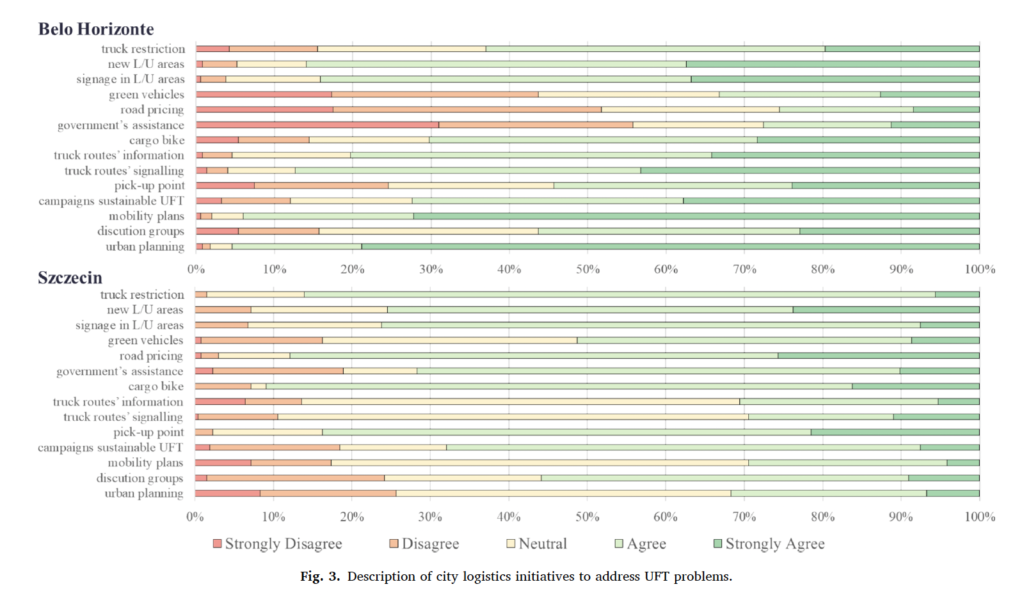The perspective of citizens is crucial for urban and transportation planning. Urban freight transport plays a vital role in cities by ensuring the delivery of goods and services to meet stakeholder demands. However, it also presents challenges like congestion, parking shortages, pollution, and freight-related accidents. A recent study applies partial least squares structural equation modeling to examine the cause-and-effect relationships between urban freight transport challenges and initiatives from a citizen perspective.
This research focuses on six causal relationships in two cities—Belo Horizonte, Brazil, representing the Global South, and Szczecin, Poland, representing the Global North—considering their geographic, socioeconomic, and political contexts. Findings indicate that citizens’ perceptions of freight-related issues shape their views on urban logistics initiatives and their perceived effectiveness. In Belo Horizonte, infrastructure concerns, particularly those affecting pedestrian and cyclist safety, are more pronounced, whereas in Szczecin, environmental issues like pollution hold greater significance.

The comparative analysis highlights the causal link between urban flow challenges and freight issues, showing that urban flow problems outweigh infrastructure and environmental concerns in both cities. Differences also emerge in the perceived effectiveness of initiatives: truck restrictions are highly valued in Belo Horizonte, while designated loading and unloading areas and improved signage are more impactful in Szczecin. Green initiatives show promise for promoting sustainable urban freight transport in both settings. However, limited variability in citizens’ responses, especially in Szczecin, suggests a consensus on the relevance of the proposed initiatives.
The findings offer practical insights for policymakers, providing direct recommendations for Belo Horizonte while serving as a benchmark for Szczecin and other cities seeking an adaptive approach to urban logistics. By incorporating citizen perspectives, this study supports the development of efficient and sustainable urban freight transport through participatory planning in both the Global South and North.
